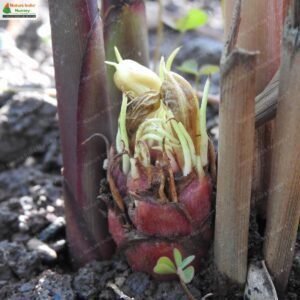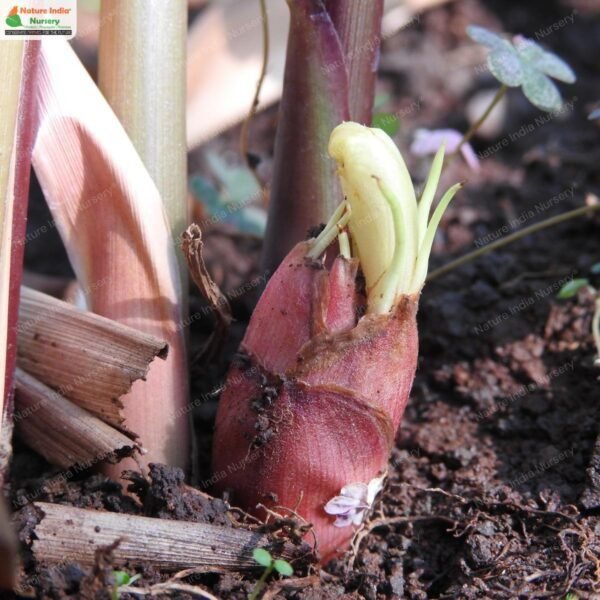Black cardamom (Amomum subulatum), also known as Bengal cardamom, is a perennial herbaceous plant native to the eastern Himalayas and adjacent regions of Southeast Asia. It is highly valued for its seeds, which are used both in culinary dishes and traditional medicine.
Habitat: This plant thrives in subtropical to temperate climates, typically found in forest understories with rich, well-drained soil. It prefers partial shade and regular watering.
- Light: Partial shade.
- Soil: Rich, well-drained soil.
- Watering: Regular watering to keep the soil moist.
- Maintenance: Requires little maintenance beyond regular watering and occasional fertilization. Propagation is typically done through division of rhizomes.
Additional Information: Black cardamom is characterized by its large, dark brown to black seeds enclosed in pods that have a smoky, robust flavor and aroma. These seeds are widely used in South Asian cuisines, particularly in savory dishes, soups, and spice blends. Medicinally, the seeds are used in Ayurvedic and traditional Chinese medicine to aid digestion, alleviate respiratory issues, and as a stimulant. The plant itself also has cultural significance in various indigenous traditions.







